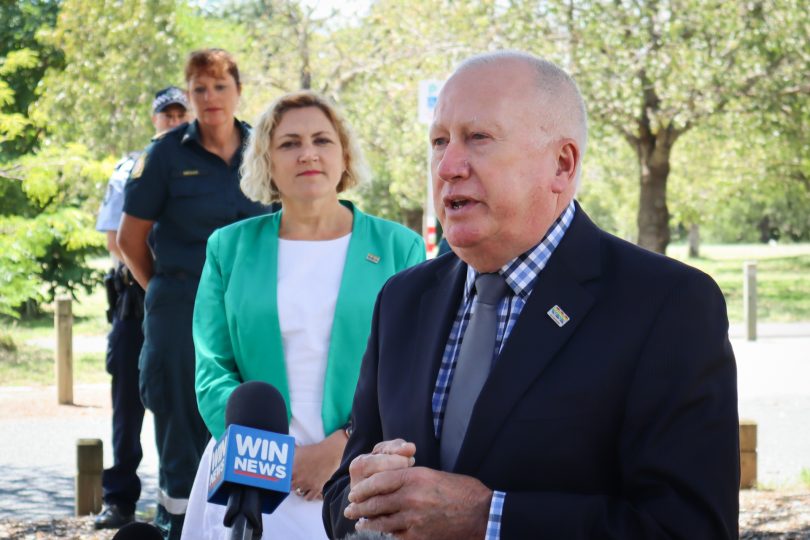
Planning and Land Management Minister Mick Gentleman is overseeing a planning system fraying at the edges. Photo: Dominic Giannini.
Planning Minister Mick Gentleman makes great play of the ACT’s independent planning system, but he seems to be making a habit of stepping in when political interests are at stake.
Last week there were two glaring examples of the government putting politics above a stable planning system that provides certainty to all parties.
Putting aside the merits of the decisions, the almost literal flushing away of the plans to redevelop the Chisholm Tavern and the canning of two waste facility proposals in Fyshwick raise questions about the planning system and the impacts such interventions have on business confidence.
Last year Mr Gentleman used his call-in powers to approve the Common Ground social housing development in Dickson. In 2019, he called in the Coles shopping centre at Dickson, in 2018, the Manuka Oval media centre project, and in 2016, the Williamsdale solar farm.
All could be argued as having a public benefit but what impact do such decisions have on the integrity of the planning system?
Last week he decided the government would not remove a public toilet block standing in the way of the Chisholm redevelopment, which included a McDonald’s restaurant.
The long-fought battle had ended up in the ACT Civil and Administrative Appeals Tribunal after the planning authority had twice rejected the development application.
ACAT gave the all-clear, as long as the government OK’d the demolition of the toilet block.
This gave the government an out in the face of a wave of community support for the tavern, including petitions sponsored by Labor MLA Joy Burch and backed by local MLAs of all political colours, and the usual vitriol directed at the golden arches.
Mr Gentleman did not announce the decision but left it to his Brindabella colleague Ms Burch to post the good news on social media on Tuesday night (9 February).
Perhaps he was too busy preparing his speech introducing specially designed legislation in the Assembly on Wednesday to ban new waste facilities in Fyshwick, as promised by just about everybody at the last election.

Chisholm won’t be swapping this for the golden arches, for now. Photo: Region Media.
Fully expecting a price to pay for circumventing the planning system and in effect re-defining the purpose of Fyshwick, the bill allows for the two companies affected – Capital Recycling Solutions, and Hi-Quality Group – to make compensation claims.
CRS got all the way to lodging a DA after years of preparation and negotiation, spending more than $4 million so far. It is now rightly upset that the goalposts have not only been moved, but the playing field is completely different.
Director Adam Perry says the situation shows doing business in Canberra is risky, and he has a point.
The government has been keen to attract waste processing and recycling players to Canberra and entertained various proposals over many years, but has only realised recently that it and the planning system’s view of Fyshwick have diverged from the reality on the ground and in the surrounding suburbs.
The end result has been a shambles, leaving the government with a political problem to solve before an election.
It should never have got to that point.
There may be excellent reasons not to allow the waste proposals to go ahead in Fyshwick, but they haven’t suddenly appeared.
The government still wants to work with the private sector on waste, but unless it can provide sites that are not susceptible to community opposition or objections from neighbouring businesses, and planning certainty, it’s going to be hard work.
In Chisholm, the proponent was promising to revamp a tired property and rejuvenate the centre. For some, it may have been a tough choice – a pub or Macca’s – but it appears the community is happy to keep its tavern, for now.
It will probably face another DA, at further cost, that will likely succeed, given the proponent should now know enough to shepherd it through.
What will Mr Gentleman do then?
Last week’s outcomes will be popular, populist, and could even be the right outcomes, but how we got to them comes with a price.
Taxpayers will likely have to compensate the waste proponents, and the planning system will be seen as capricious and a political plaything.
It also raises questions about whether Mr Gentleman is the one to oversee the current planning review.
As the ACT economy recovers from the pandemic, business leaders are calling for certainty from government. The community wants the same thing. This is not the way to go about it.












